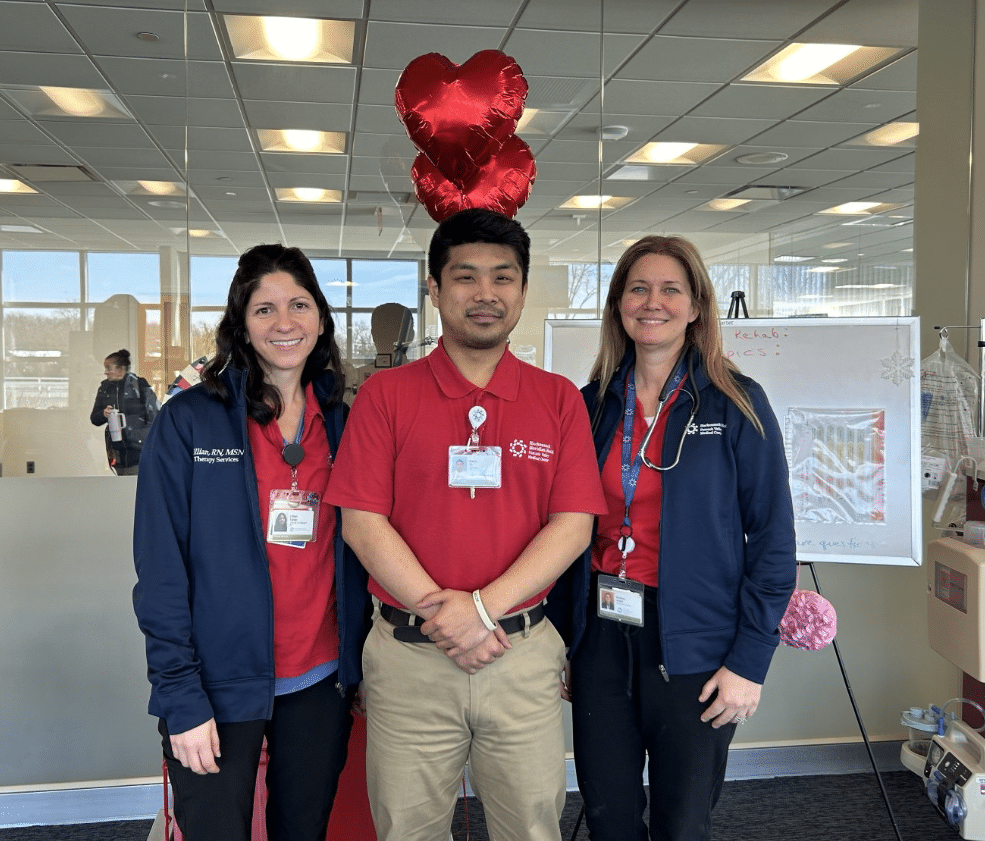Now is the perfect time to make your heart health a priority, especially for those who’ve recently suffered from a cardiac event. Whether you’ve been diagnosed with heart disease, had heart surgery, or had a heart attack, it is important to take proactive measures for recovery and prevention. Cardiac rehabilitation is one of the best methods for achieving this.
What is Cardiac Rehabilitation?
At Pascack Valley Medical Center our cardiac rehabilitation program is tailored to meet the patient’s individual needs and goals and support patients with different stages of heart disease. Our program promotes heart health and healthy lifestyle changes through supervised exercise and education including maintaining a healthy weight, heart-healthy eating, and better monitoring of lipids and cholesterol to get you on track to help you focus on your heart health. “To be part of a patient’s journey to recovery, invigorates and inspires me to provide the best outcomes possible for every patient,” shared Kevin Yi, an exercise physiologist with Pascack Valley’s Cardiac Rehab team. Our center also offers you the opportunity to connect with, meet, and share stories with other patients like you.
Components of Cardiac Rehabilitation
Exercise: The main component of cardiac rehabilitation is supervised exercise. During this, you’ll participate in specialized training sessions led by qualified professionals that enhance cardiovascular strength, endurance, and fitness. Each session is conducted with your safety in mind, therefore both vital signs and cardiac monitoring are assessed throughout.
Nutrition: It is essential to provide education on heart-healthy eating practices to control risk factors including high blood pressure and high cholesterol. Making educated food decisions can have a big influence on your overall health.
Psychosocial Support: Your mental health may suffer because of experiencing a cardiac event. For this reason, anxiety reduction, emotional support, and stress management are key components of both group and individual sessions in cardiac rehab.
Risk Factor Modification: It is crucial to recognize and take the appropriate measures against risk factors such as smoking, sedentary behavior, and obesity to avoid additional heart-related issues. You may lower your risk and learn how to better manage them through heart health education and lifestyle changes.
Benefits of Cardiac Rehabilitation
• Longer life expectancy and decreased chances of suffering another heart attack
• Management of heart disease symptoms such as chest pain or shortness of breath
• Stop or reverse damage to the blood vessels in your heart
• Lessen the physical and emotional effects of heart disease
• Improvement in stamina and strength, getting you back to your usual activities, including work, hobbies, and regular exercise
• Improvement in your confidence and well-being
Cardiac rehabilitation offers a structured approach to achieving your health goals, empowering you to live a healthier, happier life. Take the first steps towards a stronger, healthier heart. For more information on Pascack Valley Medical Center’s Cardiac Rehabilitation services call 201-781-1450 or visit our Cardiology page.

